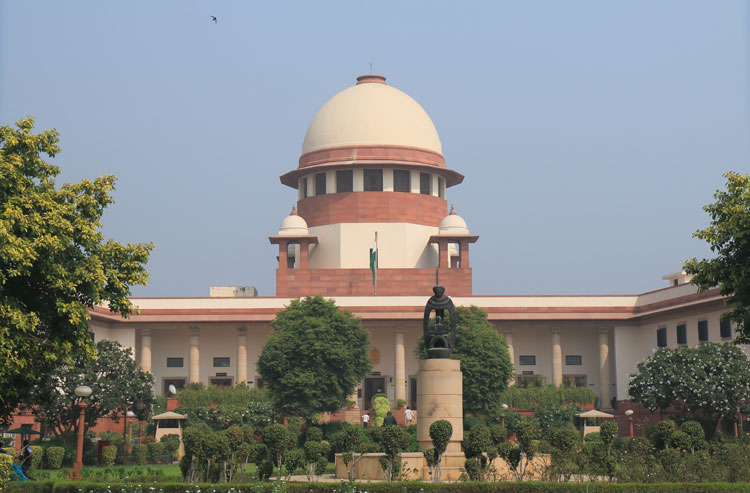The Supreme Court on Wednesday issued a notice to the Centre on five new petitions challenging the Citizenship Amendment Act, which leaves Muslims out of the list of communities to be granted fast-tracked Indian citizenship if persecuted in Pakistan, Bangladesh or Afghanistan.
A bench headed by Chief Justice S.A. Bobde tagged the matter with 160-odd similar petitions challenging the validity of the act and already pending before the court. These 160-odd were filed before the March 25 lockdown.
The apex court has already issued a notice to the Centre on the earlier petitions. Some of these petitions have challenged the entire new citizenship matrix, including any move to update the National Register of Citizens or the National Population Register.
Among the five latest petitioners are the All Assam Students Union (Aasu); Muslim Students Federation, Assam; and the Tamil Nadu Thowheed Jamath.
Most of the new and old petitions have challenged the Citizenship Amendment Act's exclusion of Muslims from the list of persecuted minorities to be granted fast-tracked citizenship, and that of non-Muslim neighbouring countries from the list of nations whose persecuted minorities may be so welcomed.
Aasu's petition, however, argues the act is unconstitutional because it facilitates citizenship for illegal migrants who entered the country on or before December 31, 2014.
It says the act contradicts the Assam Accord of 1985 and Section 6A of the Citizenship Act, 1955, inserted in keeping with the 1985 agreement.
Under the Assam accord, all immigrants who entered Assam from Bangladesh after March 25, 1971, would be deported..










